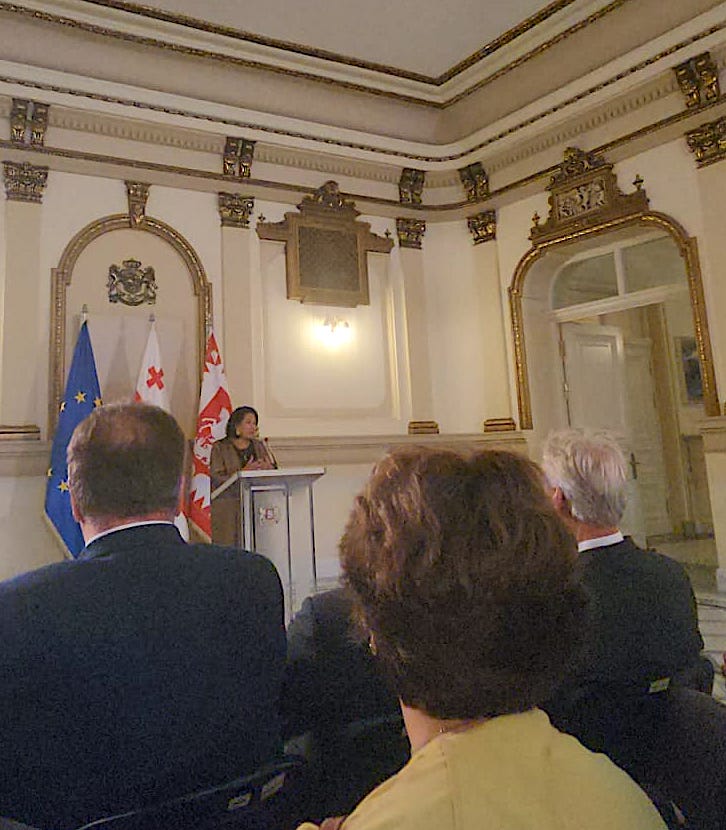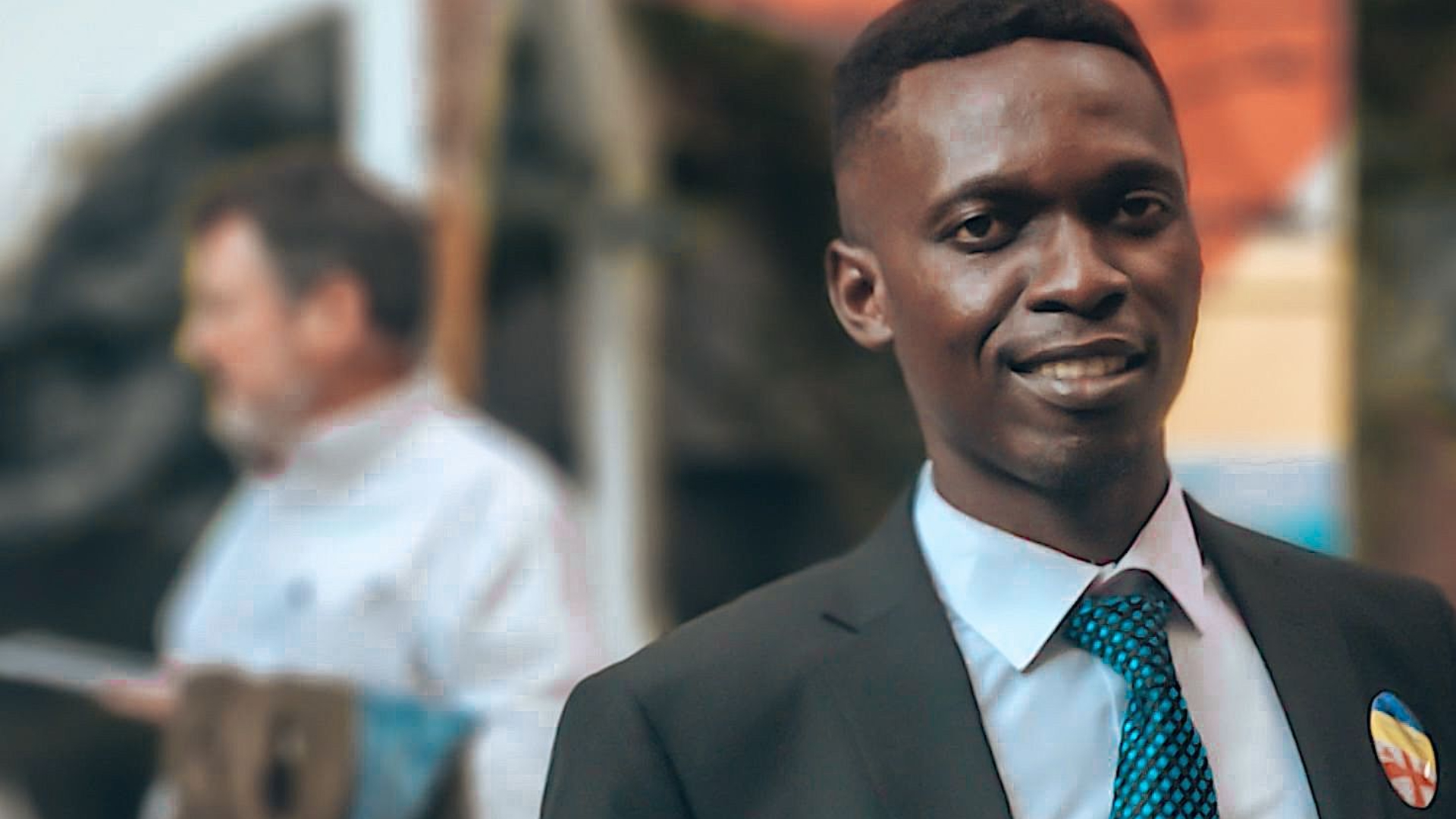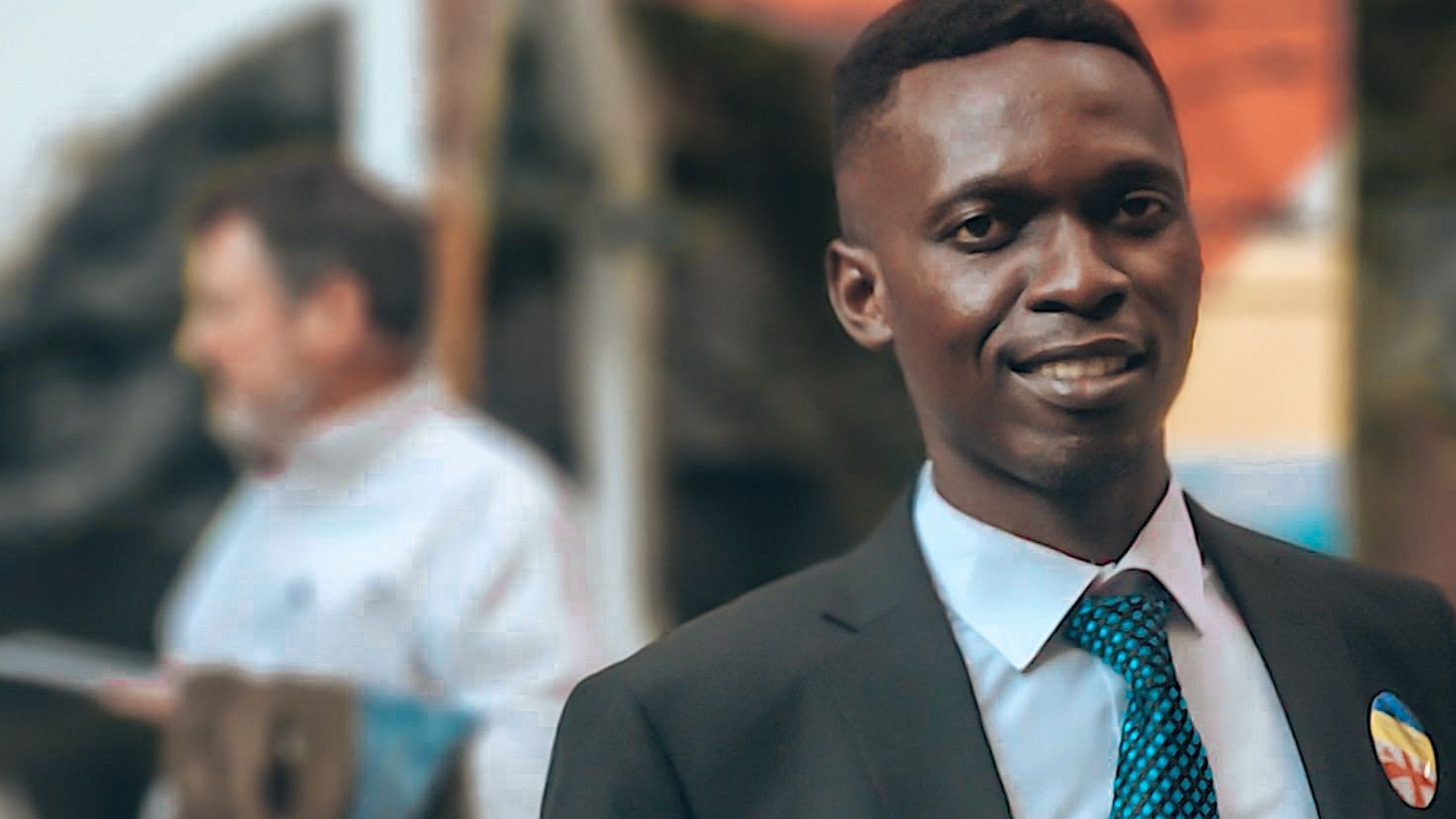by Ernest Asamoa
Ernest Asamoa, a PhD candidate in Political Science, recently attended the 8th Tbilisi International Conference – the second year he has attended the event, which attracts international and regional experts discussing critical issues. He reported on the conference, including key topics addressed and important outcomes.
The 8th Tbilisi International Conference, titled “2024: A Pivotal Year,” took place from September 2-3, in Tbilisi, Georgia. Organized by the Economic Policy Research Center (EPRC) in collaboration with the McCain Institute and the George W. Bush Institute, the event gathered policy experts, diplomats and scholars from Europe and the United States. The conference focused on critical global and regional issues with key takeaways highlighted below:
Russian aggression and influence: The need for air defense systems
The conference provided a platform for in-depth discussion of the Ukrainian case, examining American support, NATO’s role and the European Union’s involvement. While the U.S. and its allies have offered military and financial aid, Ukraine’s needs extend beyond these measures. Ukrainian conference participants – Sevgil Musaieva of Ukrainska Pravda (an online newspaper in Ukraine) and Oleh Shamshur of the Atlantic Council – provided a comprehensive overview of the country’s resilience and highlighted basic needs required to protect its independence and sovereignty. Air defense systems topped the list of priorities. Such a system will help Ukraine protect its citizens and infrastructure. In addition, there should be a tightening of sanctions against Russia, which currently appears to have the means to get around them.
Georgia’s quest for EU membership and the Foreign Agents Law
The Georgian case for European Union (EU) membership is crucial given Georgia’s complex and multifaceted relationship with Russia. Despite years of cultural, economic and political ties, the majority of Georgians envision their future within the EU, a prospect that Moscow vehemently opposes. Experts emphasized that backing Georgia’s EU aspirations is essential for maintaining regional stability, particularly in the face of growing Russian influence in Georgian domestic politics. The implementation of the Foreign Agents Law, which requires organizations such as the EPRC that receive over 20% of funding from abroad to register as foreign agents, has raised concerns. Under the law, these organizations were required to register by September 2; however, most of them chose defiance as observed by Nino Evganidze, the executive director of EPRC. These kinds of laws demonstrate how the threats to democracy come from the gradual erosion of institutions, including civil society organizations.
China, Taiwan and the U.S.
The conference highlighted the growing influence of China and its implications for global security, particularly regarding Taiwan. Speakers discussed potential U.S. support for Taiwan in the event of a Chinese invasion as well as Japan’s vital role in the U.S.’s response to China within the region. The conference highlighted China's growing influence and its implications for global security, particularly regarding Taiwan. Speakers discussed potential U.S. support for Taiwan in the event of a Chinese invasion, predicted by U.S. Admiral Philip Davidson to occur as early as 2027. The panel explored China's global role, its relationship with Russia and the significance of the Ukraine war to China's potential takeover of Taiwan. Closely tied to these discussions were insights on the upcoming U.S. November elections and their potential impact on European allies and rivals such as China and Russia. Speakers further underscored how the reengagement of U.S. in Africa was also important in countering China’s global influence. It was noted that although China, Russia, Iran and North Korea, may appear to be working together, some speakers challenged this idea on the premise that these countries have distinct interests and goals, warranting a more nuanced approach to global diplomacy.
Countering Kremlin propaganda: a western imperative
The EU and the U.S. must step up their efforts to actively counter the insidious propaganda coming from the Kremlin. This disinformation campaign has demonstrated its effectiveness in shaping public opinion in countries such as Sweden and Georgia. Shota Gvineria had observed that Georgia serves as a stark example of how Russia disinformation and misinformation tactics destabilize countries. Similarly, Scott Carpenter from Jigsaw – a Google company focused on topics such as disinformation, online harassment, counter radicalization and repressive censorship – noted that Bulgaria was the testing ground of these Russian strategies, which can now be scaled due to the emergence of AI-powered tools. As countries like Sweden acknowledge that joining NATO provides military security, their institutions must also be adapted to resist these attacks because Russia is engaged in hybrid warfare. While much of the responsibility to counter this rests on big tech companies, citizens must also be equipped to be able to identify some of these forms of misinformation and disinformation, especially with elections this year in Georgia and the U.S.
Meeting the president of Georgia
The conference offered unparalleled access to a plethora of diplomatic luminaries, including ambassadors, former ambassadors, journalists, representatives of the EU, parliamentarians from EU countries and other representatives from the U.S. However, one of the standout highlights was the exclusive opportunity to meet with Georgia President Salome Zourabichvili. This encounter provided the opportunity for high-level diplomatic interactions to occur between the Georgian president and partners from the EU and the U.S. The meeting held particular significance, given the president’s support for EU membership and closer ties with the West, which diverges from the position of the prime minister and Georgian Dream party. As a student, this scenario provides an opportunity for studies, offering a glimpse into the complexities of Georgian politics and the intricacies of international diplomacy.

Georgia President Salome Zourabichvili addressed the conference
Important outcomes from the conference
First, it strengthened alliances against the forces of oppression and authoritarianism. Democracies globally must be united in their quest to strengthen democratic norms while also providing important motivation and resources to those countries where the potential for democracy is on the brink of destruction by authoritarian forces. The conference in Georgia set the platform for the message to be sent that supporters of democracies will not be cowered into submission.
Furthermore, the conference provided a platform for strategic recommendations to be sourced. Important information provided by panelists are instrumental in effecting important changes. In the Georgian and Ukrainian cases, panelists were clear in recommending the relevance and justification of air defense systems among others.
Lastly, on a personal note, the conference provides a strong basis to practically observe, participate and interact with practitioners of international relations, diplomacy and democracy outside of the classroom; it opens doors for further research and opportunities for collaborations in providing real solutions to these difficulties rising against democracy.
Unlocking opportunities for future collaboration and growth
The connections forged with esteemed organizations like the George W. Bush Institute, Jigsaw, the Open Society and others present a vast potential for meaningful and far-reaching collaborations. By meeting and networking with representatives from these institutions, we can pave a way for future partnerships in various projects that can impact various fields within international relations and political science at FIU and beyond. Moreover, these interactions lay the groundwork to learn from and engage with renowned experts and institutions, fostering a rich environment for knowledge sharing and growth. By leveraging these connections, we can create a pipeline for future collaborations, empowering our students to tackle complex challenges and drive positive change.

